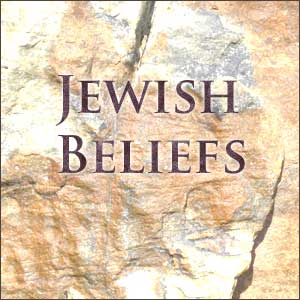Table Of Contents of my Passover Articles
- The Haftorah For Shabbos HaGadol, Serving G-d and Not Serving Yourself
- We’re Leaving Mitzrayim, Are You In?
- Why We Need The Symbols Of Slavery Also on the Table
- The Second Half Of Maggid Starting With “Metchila Ovday…”
- The Seder Night As the Vehicle of Passing Over the Tradition to the Children and Grandchildren
- A Collection of Individual Points on the Story of the Exodus
- More On The Passover Haggadah
- Seder Night and the Day After
- The Last Day of Pesach, What Was Revealed At the Splitting of the Sea
- Reciting Shiras Hayam Joyfully as if I Passed Through the Sea
The Seventh Day of Passover
On the seventh day of Passover we celebrate the miracles that happened at Yam Suf, at the crossing of the Red Sea, the conclusion of Yetzias Mitzraim, the exodus from Egypt. These miracles indeed happened on the seventh day of Pesach then, when the Jewish people actually left Mitzraim.

Searching for Jewish Beliefs? Click Here for my main article on Jewish Beliefs.
I want to record here what I said at the Seventh Day of Passover seudah. I preface by quoting what I once heard, I don’t remember in the name of whom, that if you want to write down the Torah that you said on Shabbos, make sure to write it down on Motzei Shabbos, because by the time Sunday morning comes around, it’s a whole different world, and you’ll never be able to get into the Torah again in order to write it down properly. And now it is a day and a half since Pesach ended, so, well, wish me luck.
Zohar Hakadosh on Shiras HaYam
I also want to preface that my thoughts were inspired from two sources: My neighbor in shul was learning between Mincha and Maariv the Zohar Hakadosh on Shiras HaYam, and I couldn’t help myself and I looked over his shoulder a bit. Additionally after Maariv I looked into the sefer Me’or VeShemesh.
Now, I am not checking my sources to see what thoughts were inspired from where, even though proper authoring and publishing really dictate that I should, still I think that in the framework of a personal blog the matter can be excused, especially in the light that if I don’t just go ahead and record the idea with my ten fingers right now, then it will never be done.
The Description of the Passover Haggadah
As the conclusion of Yetzias Mitzraim, as the maka bepatish so to speak, in particular in view of the description of the Passover Haggadah that the miracles at the sea were much greater in number and probably in dimension than what happened in Egypt itself, and with regard to that with Chazal say that the booty of Yam Suf was 15 times that of Mitzraim, I search for the point that was brought out there at Yam Suf that was the last rung before getting out.
Let me explain: The Torah commentaries explain that the main point of the ten plagues, besides the intrinsic punishment inflicted on the Egyptians, was in order to bring out that the Almight’y is in charge of everything that goes on here on earth, and everywhere. The Egyptians had doubts about this, or they rejected this, see the long Ramban at the end of Parshas Bo.
That’s why it says, “Ani Hashem Bekerev Ha’aretz” and “Ain Kemoni Bechol Ha’aretz” and “Lema’an Taidah ki LaShem Ha’aretz”. And that’s why Pharoah always brought in the Chartumim, his magicians, in order to see if they can do the same thing, for if so then Moshe is a bigger magician than them, but there is no proof of any Divine business going on.
Chazal say that the plagues were “Maka VeRafu”, they were a plague to the Egyptians, but they were a spiritual recovery for the Jewish people. This is why “Bo el Pharoah … U’lma’an Tesapair BeOznei Bincha … VeYedatem Ki Ani Hashem”, the revelations that were given to the Egyptians so that they understood for what they were being punished, were in particular for the Jewish people so that they be rehabilitated from the incorrect Hashkofo that they picked up in Mitzraim.
I have heard it said that this is pshat “Vayehi HeAnan VeHaChoshech, VeYa’air es HaLiyla”, that the very revelation that brought darkness for the Egyptians there at the Red Sea, was what brought light for the Jewish people.
The Torah Commentary Ohr HaChaim
Also the Torah Commentary Ohr HaChaim Hakadosh at the beginning of Parshas Bo, if I am remembering correctly, speaks out at length why the Almight’y had to bring another three plagues, what was lacking, and he explained that nothing yet has brought out that Hashem Yisborach controls the winds, and darkness and light, etc.
So I ask: if everything, all Hashgocho, was revealed lech’ora by the ten plagues, then what was left to be revealed at splitting of the sea? Especially in light of that which Chazal tell us that even a simple maidservant had there a higher level of prophecy than the prophet Yechezkel. What was the point of this prophecy?
The Zohar Says
I suggest as follows: That the Jewish people were in very bad straights there in front of the sea, with the Egyptians behind, and the sea in front, closed off from the sides by wild animals, etc. And they saw also legions of Heavenly hosts decending upon them to make war and help the Egyptians. The Zohar says this, if I remember correctly, also Rashi brings there on “Mitzraim Nosai’ah Acharayhem” that when they looked up they saw the guardian angel of Egypt coming down upon them, probably he commanded those heavenly hosts. And they screamed out to HaKadosh Boruch Hu, and, with the additional merit of the Mesiras Nefesh of Nachshon, He answered their cries with the splitting of the sea.
Chazal Tell Us
Chazal tell us that there was then a gevaldiga kitrug to the tune of “Halalu O. A. Z…” etc., and the sea didn’t want to split, and the Heavenly Court didn’t have an answer, etc.
Now, that’s really bad news, that gets serious already.
What was the answer to this argument? Why did the sea split in the end?
The Torah Commentary Rashi
The Torah Commentary Rashi brings there on “Ma Titz’ak Eliy” in his second explanation that Eily – Aliy, upon Me is the matter, it’s up to Me, and it is in My Hands, it’s not your gesheft, forget it, just go. This fits like a glove with that which the Zohar says, “BeAtika Talya Milsa”, it is dependent on “Atika”, which we are familiar with from the Shabbos Zemiros that this is one of the ways that we express ourselves when mentioning Hashem Yisborach, “Atika Kadisha”.
Kabbalah and Hanhaga
Now, in the Chassidishe Sefarim they explain from the Kabbalistic works, from Kabbalah, that there is a regular Hanhaga which we are familiar with on a daily basis, which works with the Middos: Chessed, Gevurah, Tiferes, etc. Reward and punishment, etc. Then there is a “higher” Hanhaga, so to speak, higher in the sense that in hishtalshalus ha’olamos it comes before, earlier. The Mochin. Of which Kesser is one of the Sefiros up there. Atika relates to the Kesser.
In the Chassidishe Sefarim they explain that the aspect of Kesser is Rachamim bli ta’am, pure Rachamim without any mixture of dinim. Higher than the point from where dinim develop. Ratzon Elyon. As the Messilas Yesharim quotes, “Derech HaTov Lehaitiv”.
On that higher Ratzon, the framework of the regular Hanhaga that we know on a daily basis clothes itself. Because since Derech Hatov Lehaitiv, and because of Nahama de’Kesufa, therefore Hakadosh Boruch Hu created also Olam Hazeh, where there is free choice so that we can earn our reward through choosing good and rejecting bad, etc. etc. In other words, the penimius of the regular day to day Hanhaga as we know it, is this pure Derech HaTov Lehaitiv. A parent who has to give a potch to his kids once in a while to keep them from straying too far will understand this better then someone who is not a parent, or than someone who holds that crazy idea that it is an evil, an absolute no no, to strike a kid.
G-d’s answer to the tayna “Halalu O. A. Z.” etc, is that BeAtika Talya Milsa. A reason so high up that it can’t clothe itself in the framework of words, in the framework of logic. The sea never received an answer based on reasons or logic, neither did the Heavenly Court. That’s the way it is, just listen and do it.
I suggest that this is what was the chiddush, the revelation, there at the splitting of the sea. In Egypt, the regular day to day Hanhaga was revealed in all of its aspects, that Hashem Yisborach has complete control over everything. Even more so, that everything that there is, is itself a levush of Hashem’s Will. But at Yam Suf the Hanhaga of Atika Kadisha was revealed, that there is a Hanhaga which is higher, or which is more sublime, more penimius.
And maybe this is the meaning that even a simple maidservant saw there more than what Yechezkel ben Buzi saw. But this is beyond my bekius so I will let it rest.
A gezinte zimmer.





Leave A Response